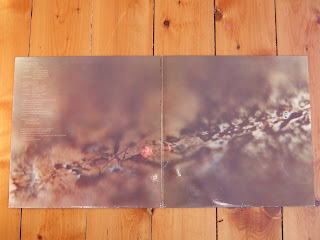Since the release of Julian Cope's Krautrocksampler in 1995, a host of German bands have been rescued from obscurity and given overdue praise for their wildly exploratory and fearlessly groundbreaking work of the late Sixties and early Seventies.
The likes of Can, Faust, Popol Vuh, Harmonia, Amon Duul II and Cluster are all now considered to be strikingly original innovators, with their influence to be found across a wide range of indie, rock and electronica acts.
 Neu! have just been given the deluxe box-set treatment that would have seemed laughable when their third album was released to minimal public interest in 1975.
Neu! have just been given the deluxe box-set treatment that would have seemed laughable when their third album was released to minimal public interest in 1975.The disintegration of Michael Rother and Klaus Dinger's partnership in the wake of Neu! 75's dismal sales was in sharp contrast to the fortunes of their fellow Germans Tangerine Dream at the time.
Having signed to Virgin Records in 1974 in the wake of John Peel naming 1973's Atem as his album of the year, TD - then comprising Edgar Froese, Chris Franke and Peter Baumann - decided to explore a new sequencer-driven sound that resulted from Franke's experiments with the Modular Moog's control-voltage analog sequencer during live performances.
The following album, Phaedra, reached No.15 in the UK charts, sitting comfortably in record collections of those of experimental bent alongside the likes of Pink Floyd, King Crimson, Soft Machine and Traffic.
Strangely, the album bombed back in Germany, selling just 6,000 copies, which probably explains why the band were delighted to take up Richard Branson's offer to record the follow-up at his Manor studio, in Shipton on Cherwell in Oxfordshire, where Mike Oldfield had previously recorded Tubular Bells.
Surrounded by gothic splendour, looked after by those 'helpful ladies at the Manor' who get a mention in the sleeve credits, and on a high from their recent successes, TD rose to the occasion, quickly recording Rubycon during the month of January 1975, prior to its release on March 21. The record business moved faster in those days.
With just one track per side, Rubycon seems to draw together some of the strands from their previous five albums, ranging from the slowly creeping tendrils of sound that that open Rubycon part one, recalling the quieter moments of 1971's Alpha Centuri, to the grand swell of the rhythmic patterns that emerge to continue Phaedra's experiments.
Part two starts with a darker, howling atmosphere that recalls the Ligeti-influenced epics of 1972's mammoth Zeit double LP before returning a more sequencer-driven style.
The results must have been mindblowing when you were reclining on a beanbag in the glow of your lava lamp back in 1975, and they still sound suprisingly original now considering the endless acres of dreary and predictable trance that eventually emerged in its wake.
Virgin packaged Rubycon in a beautiful gatefold sleeve with pictures taken by Froese's wife Monica on the front, back and inside.
The bluey green 'splash' pictures on the front and back give the impression of a moment in time being captured, which seems apt considering the speed TD work at, having now reportedly released more than 100 albums during a career into its 43rd year.
The band's spell on Virgin alone, which lasted from 1974 to 1983, resulted in over 20 releases, including studio albums, soundtracks, live LPs and Froese's solo efforts.
Having been born out of a scene based around experimentation and improvisation, Froese has stuck with those principles, issuing albums as snapshots of where he or the band are up to.
By way of contrast, Ralf Hutter and Florian Schneider released just 12 albums in their 40 years together in Kraftwerk up until 2008. Kraftwerk's decision from 1973 onwards to do their improvising behind closed doors and to perfect their ideas before releasing them has led to the band widely being seen as one of the most influential of the 20th century. Less clearly is more.
Tangerine Dream, it must be said, have released plenty of mediocre crap over the years, often stretching ideas to the point of tedium, resulting in their finest moments being rather neglected nowadays. Neu! and TD's critical standing seem to have reversed over the course of three and a half decades.
All the early TD albums are worth investigating, though, and their commercial high water - Rubycon reached No.10 in the UK charts - is also quite possibly their finest.


No comments:
Post a Comment